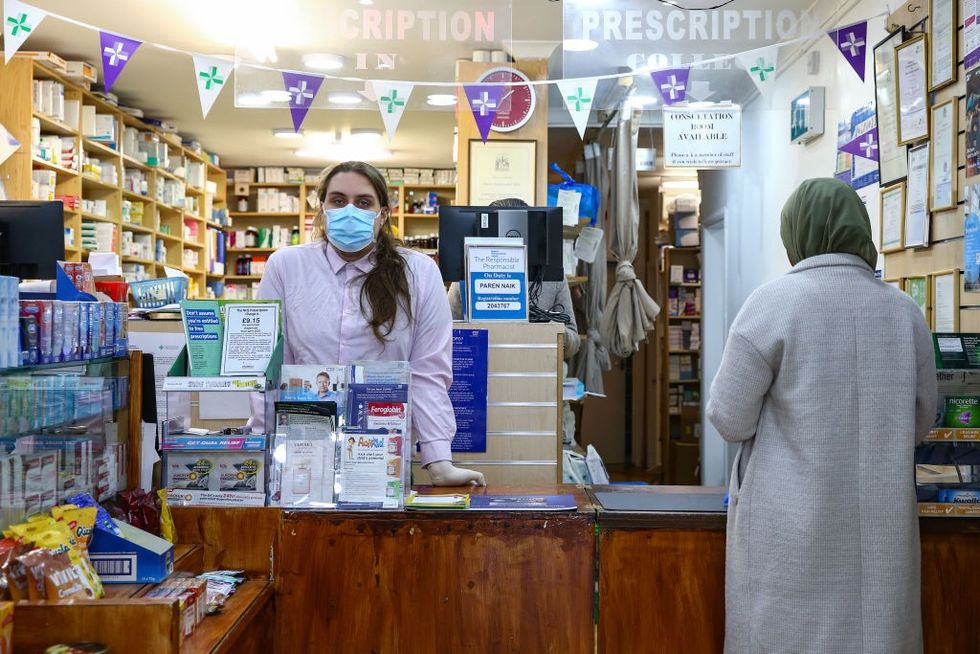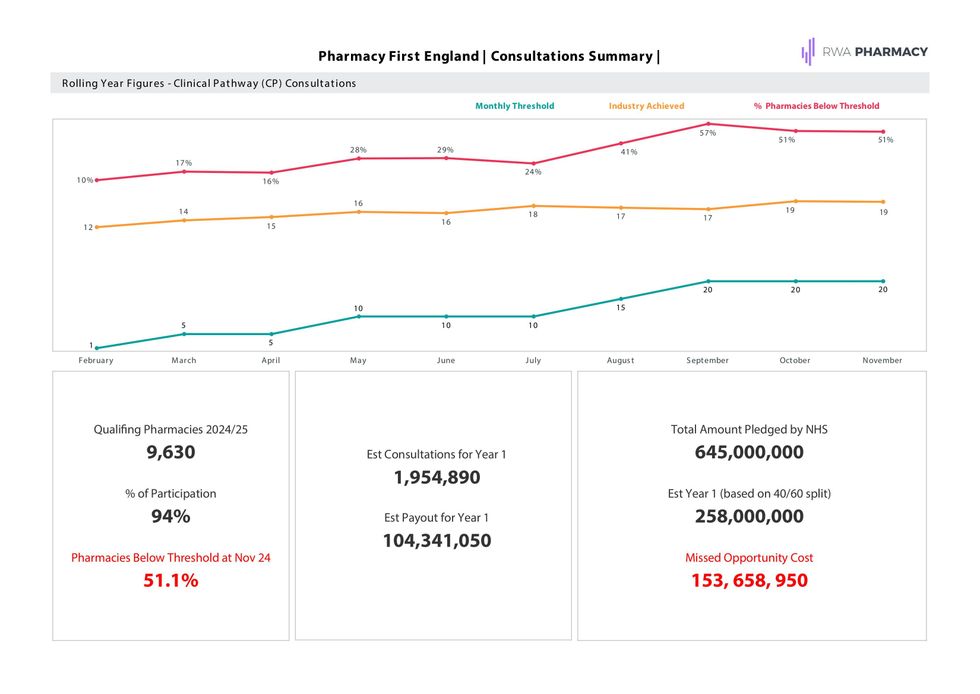By Jeremy Meader
Pharmacists held their breath ahead of the government’s latest funding deal announcement earlier this week - hoping a big cash boost would ease pressure on the struggling sector and allow for some green shoots of recovery.
The department of health announced an increase in funding for 24/25 of £106m to £2.7 billion and simultaneously a further increase to £3.1 billion for 25/26.
For many pharmacies this meant they were off life support but still very much in intensive care.
Whilst the increase is welcome and is a step in the right direction, it isn’t remotely close to bridging the fundamental deficit in the sector of c.£2 billion. The government-commissioned Independent Economic Review of NHS Pharmaceutical Services, carried out by Frontier Economics and IQVIA and published only last week, revealed that nearly half (47%) of English pharmacies are unprofitable and that 99% are losing money providing NHS services.
Pharmacies across England have served their communities extremely well over the last six years, whilst facing unprecedented challenges and pressures, and should be commended for doing so.
Yes, there will now be more money for pharmacies, but with a further raft of cost increases, including National Insurance, National Minimum Wage and Business Rate kicking in this month, much of the money given with one hand will be taken back with the other.
Encouragingly, the new contract is only for one year, so it does give the government the opportunity of this being the first of several major steps to facilitate a more vibrant future for the pharmacy sector. Owners need confidence to invest in their pharmacies and that requires commitment from the government to sustainable long-term funding.
While the contract announced on Monday isn’t perfect, as Stephen Kinnock acknowledged, it is much better than what was presented to pharmacies in 2019 when the government used the two per cent inflation to justify a flat funding contract, that proved over time to be toxic.
Due to soaring inflation following the 2019 deal, pharmacies were forced to absorb all the crippling costs themselves. It saw big players like Lloyd’s exit the market and has meant a multitude of independent pharmacies struggled to keep the lights on.
Pharmacy First: England must follow Scotland’s lead
The move to prevention is one of the NHS’s three key drivers, to achieve this it is imperative that there is sustained investment in primary care, which is the best possible route to allow for conditions to be better managed to ensure patients stay well for longer and are more actively involved in managing long-term conditions. Pharmacies should be the first port of call, the front door for patients to healthcare in the heart of their local community.
Pharmacies can help patients with conditions such as diabetes, high blood pressure and high levels of cholesterol, which if detected early and then appropriately managed, can prevent severe issues such as heart attacks and strokes that ultimately result in much more expensive secondary care costs.
One only has to look north of the border to see how well Scotland utilises their Pharmacy First scheme to get patients through the door. And, when a patient is in the pharmacy, they have access to a comprehensive range of services and treatments, all with the aim of improving their health and removing the strain from GP’s. Now, England must follow suit. This simple tweak could free GPs to spend time with the patients that so desperately require their attention. Let’s hope the additional £215m pledged to support Pharmacy First and other services will be delivered at pace and with less bureaucracy.
There are now just over 10,000 pharmacies in England and if the Government is serious about improving healthcare, they must continue investing to enable the sector to deliver to its full potential. With negotiations planned to begin early in the Autumn for the 26/27 contract, there is an opportunity for a more substantial increase to help close the gap identified by the Economic review. Community Pharmacy England (CPE) will have its work cut out to negotiate this.
This new deal feels like a sticking plaster that provides just enough cover for the current wound, whilst offering the hope of continued healing over time. It is not the outcome the sector had hoped for, ministers must realise that sustained financial support is required to get the sector out of intensive care and back to a stable position as a key pillar of a revived NHS.
Jeremy Meader is the Chief Wholesale Officer of Bestway Healthcare, overseeing brands such as Lexon, Wardles, and Bestway Medhub. Jeremy has over 25 years of experience in the UK pharmaceutical sector, and has worked in executive roles across the industry.









 Harry McQuillan
Harry McQuillan






 Wes Streeting outlines ambitious NHS reform plansPic credit: Getty images
Wes Streeting outlines ambitious NHS reform plansPic credit: Getty images Pharmacies played a critical role during the pandemicPic credit: Hollie Adams/Getty Images
Pharmacies played a critical role during the pandemicPic credit: Hollie Adams/Getty Images




 Shivam Modi
Shivam Modi